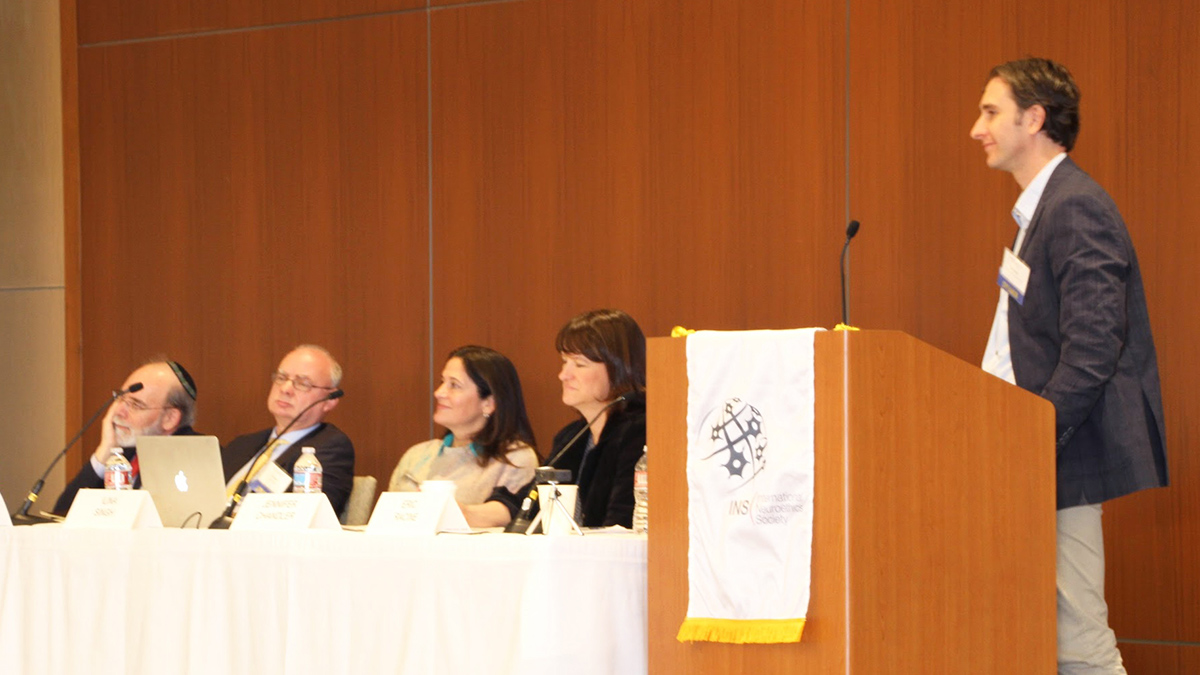The Competing Identities of Neuroethics
Panelists from left to right: Paul Appelbaum, Tom Buller, Illina Singh, Jennifer Chandler, and Eric Racine (moderator). This panel session, moderated by Eric Racine, raised the question of whether or nor neuroethics is an image of its creators, raising the possibility of competing identities, with different perspectives, methods and ways of practicing. On the one hand there is the scientific image (biological sciences) of neuroethics, while on the other hand the manifest image (the humanities and social sciences). Is it a neglected area of medical ethics, a discipline, an expertise, a content-field of bioethics or of neuroscience? The panel started with a perspective from clinical psychiatry and neurology offered by Paul Appelbaum. He argued that a focus on ethical issues in the clinical setting is only one part of neuroethics, and that the empirical approach is one possible way of advancing neuroethics. The second presentation, by Jennifer Chandler, offered the perspective of neurolaw. Chandler discussed the parallels and differences of neurolaw and neuroethics. Among the parallels that she identified are that both involved normative reflection, and that certain critiques apply to both (e.g. reductionism, essentialism, brain-mind problem, neurohype, and interdisciplinary). Tom Buller, the next panelist, talked about the speculative identity of neuroethics. He compared the BRAIN initiative with the Apollo Program, arguing that this was an extraordinary opportunity in time. Buller also discussed two types of speculation: internal speculation and external speculation. Buller describes neuroethics as a form of environmental ethics. Finally, Ilina Singh focused on the pragmatic identity of neuroethics. She talked about the relevance of a pragmatism that embraces logical 'scientific' approach to moral problem solving, that expresses moral through as hypotheses, that is experimental and that uses theoretical frameworks to tests hypothesis against. She also discussed some of the key problems with pragmatic approaches to neuroethics, such as methodological training and rigor, confusion over the value of empirical data in ethics, and a lack of sustained theoretical discussion. The panel concluded that multiple views regarding neuroethics can be both a pitfall but they can also be an advantage. – Laura Cabrera, Michigan State University, USA |
